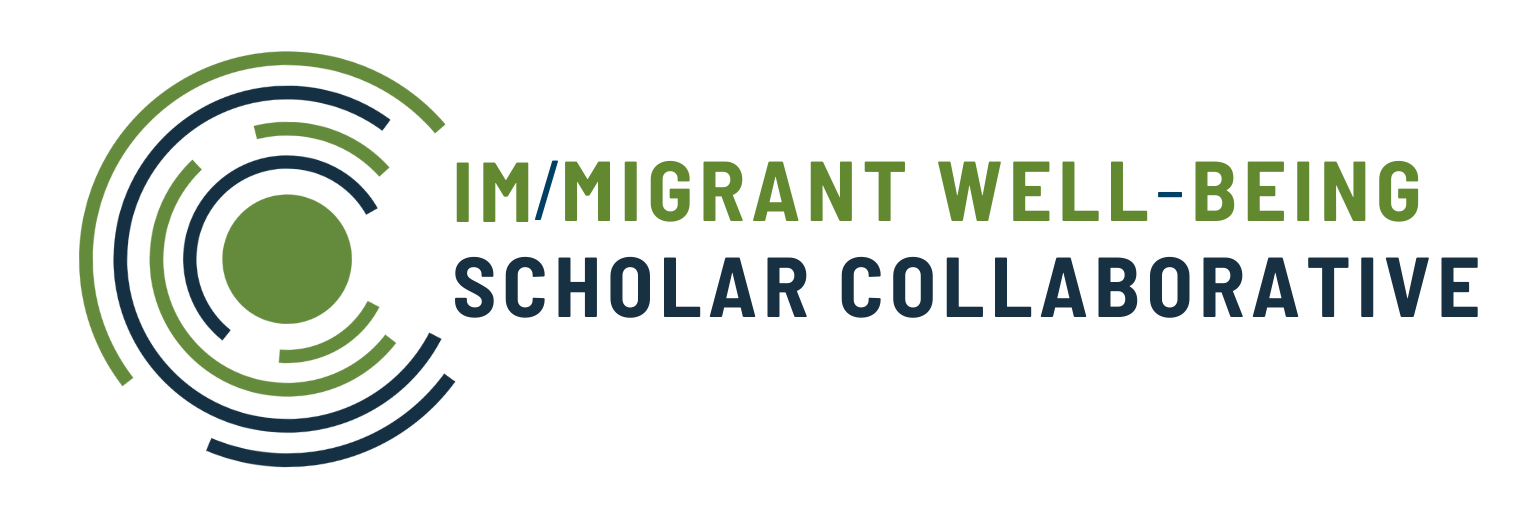May marks Mental Health Awareness Month, a time to increase awareness on the importance of mental health and well-being. Despite being constantly in the news cycle these days due to the upcoming Presidential election, the mental health and well-being of immigrants, a population subject to particular vulnerabilities and the subject of harsh rhetoric and policies, is often forgotten.
Take for example, a recent Senate Judiciary Hearing held this month, “Dream Deferred: The Urgent Need to Protect Immigrant Youth” on Deferred Action for Childhood Arrivals (DACA) recipients, which had little to no discussion of the mental health and well-being impacts of US immigration policies – despite research that shows acute impacts even in US citizen children of immigrants. During the nearly three hour-long hearing, there was a single mention of the words “mental health” according to its transcript, spoken by a DACA recipient herself. President and CEO of TheDream.US, Maria Gabriela (“Gaby”) Pacheco, mentioned the importance of mental health services provided by higher education institutions in response to a question from Senator Butler of California.
The lack of substantive discussion around mental health and well-being should raise concerns when considering the latest empirical research into immigrant lives. A study published last year in the peer-reviewed journal Social Forces conducted by scholars at the George Washington University Cisneros Hispanic Leadership Institute and University of South Florida Im/migrant Well-Being Research Center that interviewed over 50 DACA recipients living in the Tampa Bay area found that in the aftermath of the Trump admin rescission of DACA, 9 out of 51 interviewed had attempted suicide, and almost half had engaged in self-harm.
Congress Members should be on high alert when it comes to the mental health and well-being of immigrant communities across the country. Especially, during an election year where false and harmful rhetoric constantly makes its way into the media. Research shows that even media narratives themselves can lead to distress and anxiety in immigrant communities.
So, what can the US government do to protect the well-being of immigrants?
Language barriers create additional hurdles which stress the need for culturally competent care. Mental health treatment rooted in white, Western norms often fails to resonate with Latino and other immigrant youth. For example, Spanish-speaking providers are in short supply, making it difficult for young people to articulate their struggles to therapists.
Accordingly, it is imperative that the US increase funding for school-based mental health services and increase the number of bilingual mental health professionals in schools to improve access to care for immigrant youth and young adults. Federal, state, and local governments should also ensure awareness through public education programs of people’s rights to interpretation and translation services in healthcare settings.
While Congress recently held a hearing on DACA, it should also hold hearings to investigate and gather information about mental health and well-being for immigrant communities in the US. Some young immigrant adults have described the state of immigrant mental health as a “silent crisis.” The government can play a role in reducing the stigma by having open conversations uplifting the narratives of those impacted to learn more.
Fostering partnerships with community organizations and youth-led initiatives to develop culturally relevant outreach strategies can help engage immigrant youth and young adults in mental health services. For example, the National Institutes of Health is funding collaboration to improve Latino mental health through the use of promotores or community health workers from the Latino community. Other organizations like Immigrants Rising provide a range of mental health and well-being services for immigrant communities. Additionally, government entities can use social media and digital platforms to raise awareness about mental health resources and reduce stigma to encourage help-seeking behaviors among immigrant youth.
The US government should also increase funding to schools to provide robust wraparound, holistic mental health services. As Ms. Gaby Pacheco noted at the hearing, schools can play an important role and serve as a primary point of contact for identifying and supporting Latino youth struggling with mental health issues – some scholars have suggested that schools should embrace a trauma informed approach to well-being especially for Latinx students who can struggle with a sense of belonging. She and Senator Butler also pointed to the creation of DACA Centers and organizations at schools to provide support to undocumented students. One study of DACA recipients in the Washington, DC metro area finds that immigrants themselves perform critical brokerage services for others to promote inclusion and well-being where the state falls short – even despite their own precarity – a testament to the importance of social networks and supports.
Higher education institutions should encourage a dialogue around mental health and well-being through their programming and research. For immigrants across the country, the US government and higher education embracing a wraparound and holistic approach to mental health and well-being, meeting people where they are at, can make all the difference.
Thomas J. Rachko, Jr. serves as a research-to-policy implementation specialist at the Im/migrant Well-Being Research Center and Im/migrant Well-Being Scholar Collaborative.

